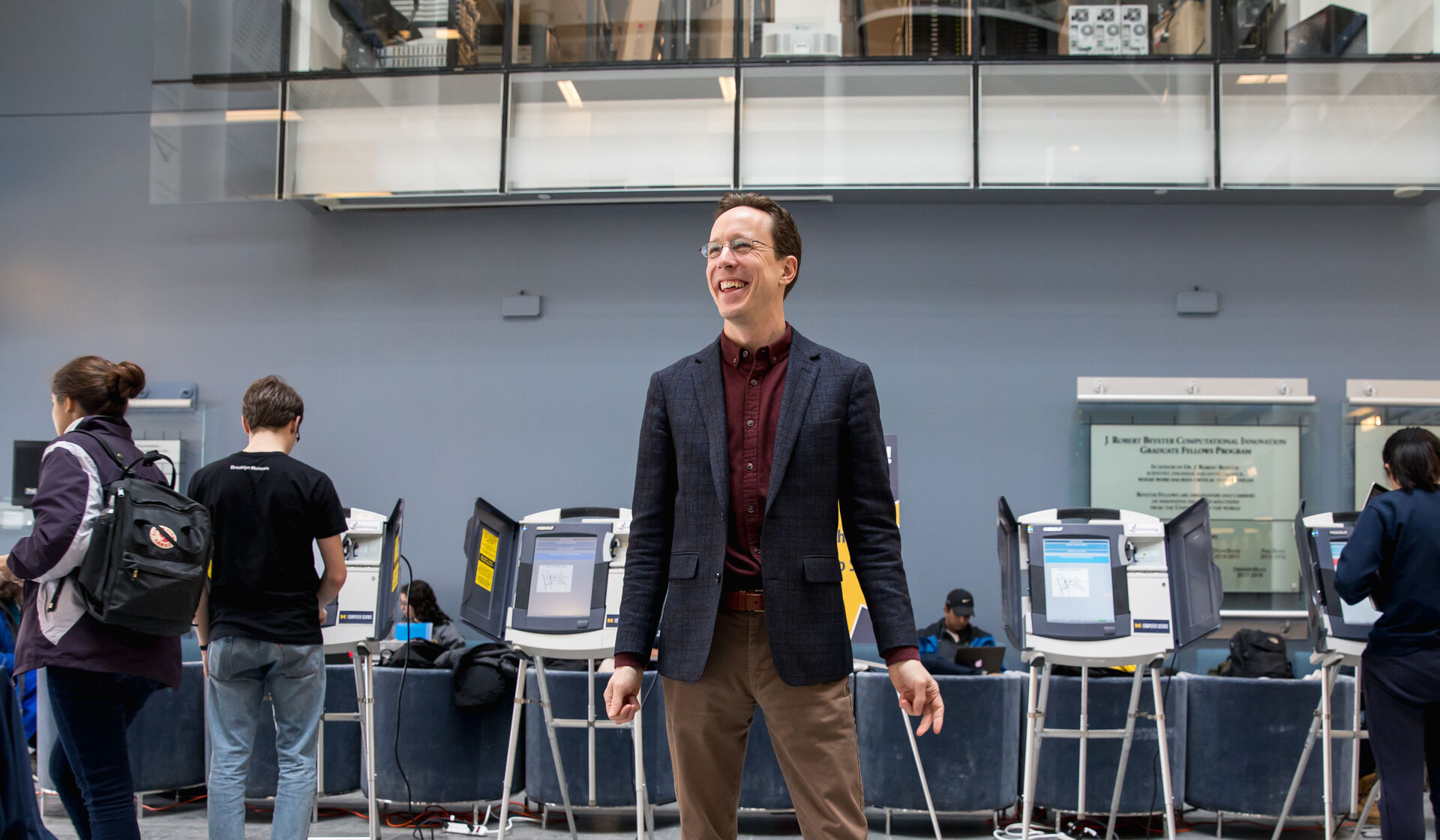As she edits tracks of NPR’s newest podcast series, “Believed,” Jennifer Guerra, ’00, sometimes finds the content difficult to listen to, as survivors of sexual abuse by Larry Nassar tell their stories. But Guerra and her podcast team consider the series to be an important service to those survivors.
“The four of us on this project一the editor, the two reporters, and myself一are all moms,” said Guerra. “The thing we keep coming back to is asking ourselves ‘What would I have done in this situation, and would I have missed these red flags?’”
“Believed” is a mini-series that tells the story of the women who reported Nassar一the Michigan State University physician and professor and USA Gymnastics team doctor who sexually abused more than 265 women. It is also the first locally produced podcast aired by the national network NPR. Guerra, the podcast’s executive producer, and her team of Kate Wells, Lindsey Smith, and Sarah Hulett are creating their podcast at Michigan Radio, which is operated by the broadcasting arm of U-M.
The series differs from the many other national reports on the Nassar case because it focuses on untold stories, including interviews with detectives and parents as well as police recordings of Nassar. It also uses a critical lens to analyze how multiple levels of authority managed to disregard the warning signs. The team decided on a weekly, chronological unfolding of the story over eight episodes.
“This abuse went on for more 20 years,” said Guerra. “There were hundreds of women and girls being abused. In the daily news cycle that gets lost. It’s just another number, another sentence. It’s hard to wrap your head around the magnitude of the abuse and really figure out how he was able to get away with it for so long. Kate and Lindsey didn’t feel like anyone else had really tackled that question,” Guerra said of the writers and hosts.
Hulett, the editor, and the rest of the team made the first episode an attempt to explain who Nassar was in his prime, revealing the “good guy persona” that he used to manipulate people.
Wells had been covering the story for nearly two years, gathering vast amounts of information, which created a well-rounded and informed podcast. “It was a favorable symbiotic relationship一for us to bring them the knowledge coming from reporters who knew the material and for them to help us make the podcast sing and get it out in front of as many people as possible,” Guerra said.
Guerra joined the podcast’s production team in mid-creation in June 2018, following her Knight-Wallace journalism fellowship at U-M. During the fellowship, she researched the podcast landscape and brought technical knowledge to the team, advice on how to move the storyboard forward, and expertise to cultivate a compelling multipart series. She then pitched the show to NPR.
Guerra said the “Believed” team offered NPR something that others could not acquire on their own: seasoned reporters who were on the ground covering the Nassar story.
She added that making this information available to the public will help others notice warning signs. “Hopefully, people who are listening can understand better how something like this happens and can all work together to ensure something similar doesn’t happen again.”
Junior Catherine Nouhan is an editorial assistant for Michigan Alumnus and a news reporter for The Michigan Daily.
Editor’s Note: This story has been updated to more accurately reflect the nature of the podcast and correct errors in reporting.





